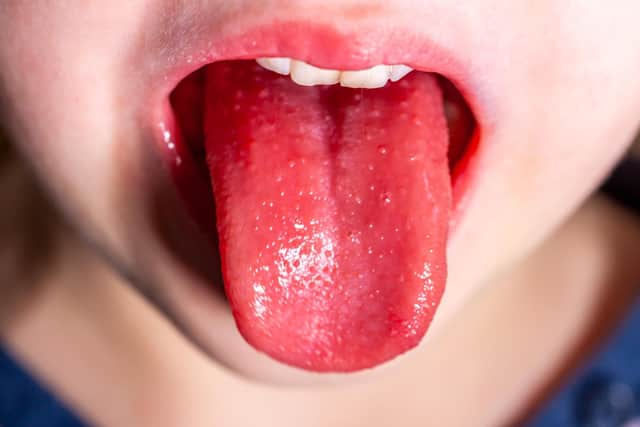Four deaths in South West after Strep A diagnosis - latest case numbers
and live on Freeview channel 276
The latest data released by UK Health Security Agency (UKHSA) shows that there were 440 cases of scarlet fever and 65 cases of Strep A in the South West between September 12 and December 4.
There have also been four recorded deaths within seven days of a Strep A diagnosis in the South West in that period. These deaths have been in adults.
Advertisement
Hide AdAdvertisement
Hide AdThe UKHSA South West region includes Bristol, Cornwall, Devon, Somerset, Dorset, North Somerset, South Gloucestershire, Bath and North East Somerset, Gloucestershire, Swindon and Wiltshire.
The latest data from the UKHSA continues to indicate that there is an out of season increase in scarlet fever and group A strep infections. Cases usually show steepest rises in the new year, but have increased sharply in recent weeks.
From September 12 to December 4, there have been 6,601 notifications of scarlet fever. This compares to a total of 2,538 at the same point in the year during the last comparably high season in 2017 to 2018.
Strep A cases across all age groups are slightly higher than expected at this time of year. The latest data continues to highlight a higher proportion of Strep A cases in children than experts would normally see but it remains uncommon.
Advertisement
Hide AdAdvertisement
Hide AdSo far this season, there have been 85 Strep A cases in children aged 1 to 4 compared to 194 cases in that age group across the whole of the last comparably high season in 2017 to 2018. There have been 60 cases in children aged 5 to 9 compared to 117 across the whole of the last comparably high season in 2017 to 2018.
The majority of cases continue to be in those over 45. So far this season there have been 60 deaths across all age groups in England. This figure includes 13 children under 18.
In the 2017 to 2018 season, there were 355 deaths in total across the season, including 27 deaths in children under 18.
Dr Colin Brown, Deputy Director, UKHSA, said: “Scarlet fever and ‘strep throat’ are common childhood illnesses that can be treated easily with antibiotics. Please visit NHS.UK, contact 111 online or your GP surgery if your child has symptoms of this infection so they can be assessed for treatment.
Advertisement
Hide AdAdvertisement
Hide Ad“Very rarely, the bacteria can get into the bloodstream and cause more serious illness called invasive group A strep. We know that this is concerning for parents, but I want to stress that while we are seeing an increase in cases in children, this remains very uncommon.


“There are lots of winter bugs circulating that can make your child feel unwell, that mostly aren’t cause for alarm. However, make sure you talk to a health professional if your child is getting worse after a bout of scarlet fever, a sore throat or respiratory infection – look out for signs such as a fever that won’t go down, dehydration, extreme tiredness and difficulty breathing.
“Good hand and respiratory hygiene are important for stopping the spread of many bugs. By teaching your child how to wash their hands properly with soap for 20 seconds, using a tissue to catch coughs and sneezes, and keeping away from others when feeling unwell, they will be able to reduce the risk of picking up or spreading infections.
“There are lots of viruses that cause sore throats, colds and coughs circulating. These should resolve without medical intervention. However, children can on occasion develop a bacterial infection on top of a virus and that can make them more unwell. As a parent, if you feel that your child seems seriously unwell, you should trust your own judgement.”
Advertisement
Hide AdAdvertisement
Hide AdThe UKHSA advises people to call 999 or go to A&E if your child is having difficulty breathing – you may notice grunting noises or their tummy sucking under their ribs; if there are pauses when your child breathes; if your child’s skin, tongue or lips are blue and if your child is floppy and will not wake up or stay awake.
Comment Guidelines
National World encourages reader discussion on our stories. User feedback, insights and back-and-forth exchanges add a rich layer of context to reporting. Please review our Community Guidelines before commenting.
